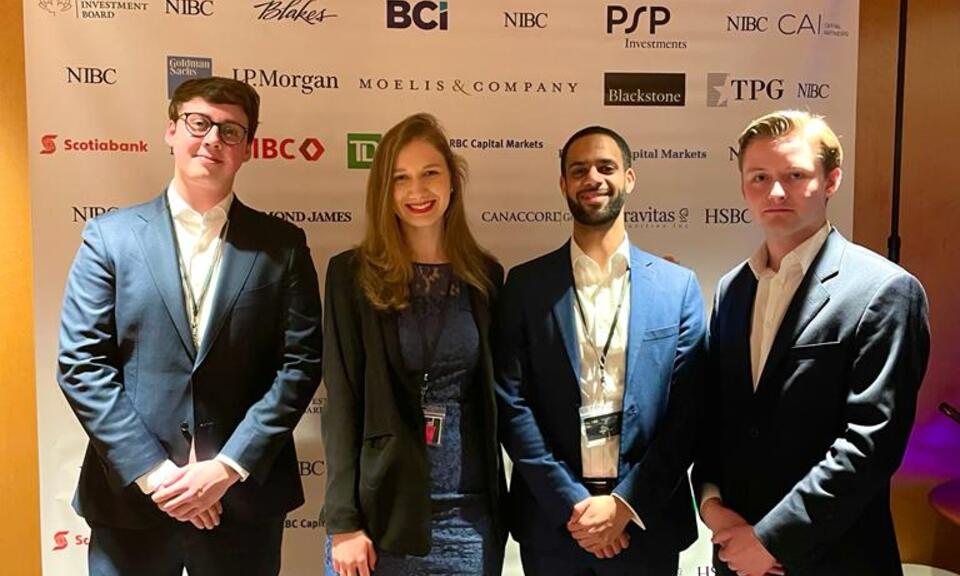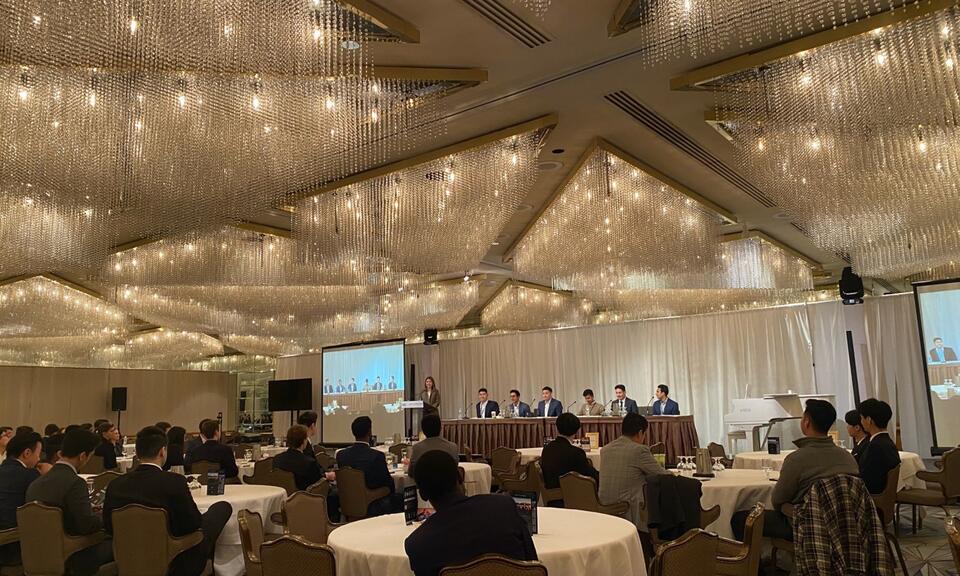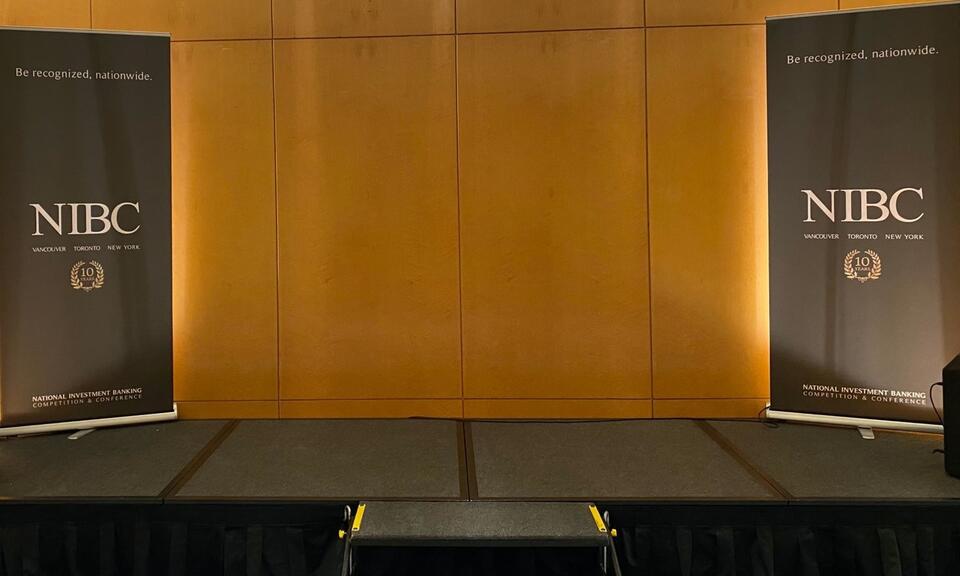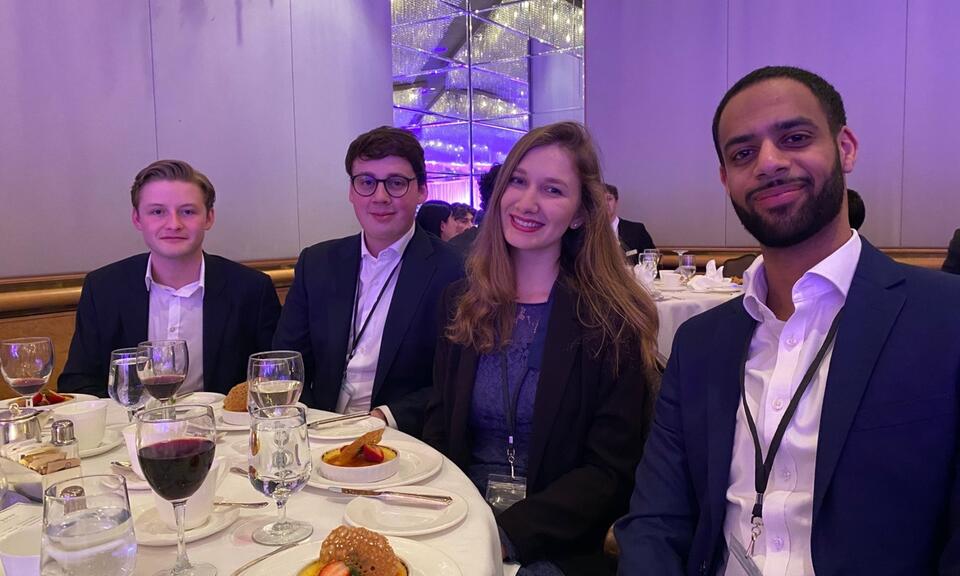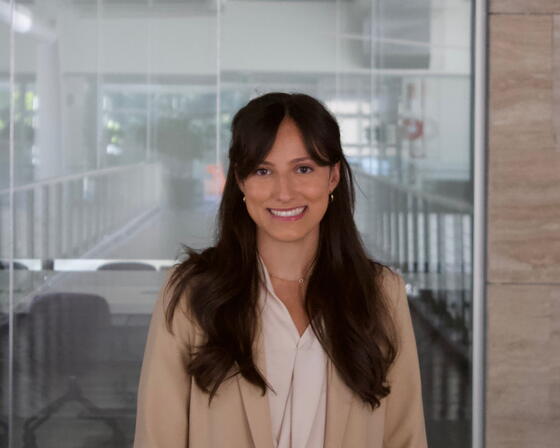Attending the NIBC Global Investment Banking Competition
MSc Finance student, Mazin Seid shares his experience attending and representing Imperial Business School at the NIBC Global Investment Banking Competition.
It was an honour to represent Imperial Business School at the NIBC Global Investment Banking Competition alongside my classmates, Storm Andreas Larsen, Cameron McRobb and Iulia Tertilova. We’re delighted to say that we made it to the final stage of the competition in Vancouver! In this blog, I shine a light on our visit to Canada and give you an insight into what we learned from this opportunity.
What is the Global Investment Banking Competition?
Hosted in Vancouver, The NIBC Global Investment Banking Competition brings together teams of university students from around the world to act as Investment Banking Analysts through two rounds of competition. It is designed to mimic the high-pressure banking environment as competitors are required to pitch solutions to a series of corporate finance problems along the way. This year, both rounds of the competition were set within the Healthcare sector, specifically focusing on Dentalcorp - one of the largest dental support organisations in Canada.
The First Round
The first round case study was relatively broad in nature. The case study introduced the Canadian Dental Support Organisation space as one that is ripe for industry consolidation and mentioned that there were private equity players active in consolidation plays. To add a sense of urgency, we were told that Dentalcorp received an unsolicited takeover offer from another player. Our task was to pitch potential options to Dentalcorp’s board of directors in response to recent industry consolidation activity. Our main recommendation was the merger of Dentalcorp with 123Dentist, one of the largest networks of dental practices in Canada.
There certainly was a lot to cover for the first round! To begin with, all our recommendations had to be strategically sound, which called for an understanding of the industry specifically within Canada and of the other key players in the space. To come up with our recommendations, we had to value Dentalcorp as a business, putting into practice the valuation techniques we learned in our Business Valuation and Corporate Finance classes before the competition. We knew that we would be assessed on our attention to detail, so we were particularly careful when putting together our slides. Alongside the pitchbook, we also had a video submission, as well as the supporting financial models to back our numbers.
The Second Round
A few weeks later, we were surprised to receive an email containing an invitation to the final round in Vancouver! From over 1000 submissions, we made it to the final 54, but we knew this round would be a lot tougher. Alongside our coursework and exam preparation, we agreed to set aside a couple of days to run through practice cases ahead of the competition.
On the 28th March, we arrived at the Pan Pacific hotel in Vancouver where we were briefed on the competition ahead. The final round case was also on Dentalcorp but was more specific this time; our pitch was to a group of private equity sponsors that were considering a management-led buyout of Dentalcorp, or a roll-up of a series of smaller dental practices across Canada. We had to present a case for the venture that would provide our private equity investors with the most value.
The final round was split into three parts; firstly, we were given the final round case early the next morning and were required to submit the pitch in no later than six hours. Following submission, we took a taxi to Scotiabank Tower to present our ideas in a boardroom to a panel of bankers. This stage would whittle down the 54 teams to nine. The remaining teams had another round of pitches to complete, narrowing down to only three teams. The final three teams would present to a panel of managing directors across Investment Banking and Private Equity firms in the Final Gala Dinner. The committee organised a series of speaker sessions throughout the competition.
We only made it as far as the first boardroom presentation in the final stage, but we learned so much in the process. The biggest takeaway was that it’s a lot easier now to imagine what investment bankers do on a day-to-day basis through the valuation exercises and boardroom presentations we participated in. Producing a boardroom pitch in the space of a few hours certainly gave us an idea of the time pressure to expect on the job! It was also an excellent opportunity to get feedback from industry professionals on our approach at the end of our pitches, as well as a chance to meet dozens of students from around the world who all share the same passion for Finance.
Rounding Up
All of this would have not been possible without the support we obtained from Imperial Business School- we are tremendously grateful that the Business School covered a substantial proportion of the costs for the entire competition. We also had the backing of Dr Jamie Coen, our Corporate Finance professor throughout the competition, who taught us the fundamentals in our first term to be able to participate. Having studied my undergraduate degree at Imperial London, the choice to return for a Master’s was an easy one; I knew from experience that Imperial works hard to support and to provide opportunities for its students, particularly in career-related activities.
For those who are considering competing in the future, my advice would be to go in with a game plan. Certain activities will play to certain team members’ strengths, so it is important to understand these well before travelling to Vancouver to be as efficient a team as possible. I would also stress the importance of setting aside at least two or three days to practice cases before doing it for real. You’ll get an idea of what parts of the pitch take the longest to complete, and what the key assumptions and decisions will be in the financial models. Remember to cover all deal types and and not just your traditional merger! Lastly, don’t forget to have fun. As much as you’ll be working hard, the programme is designed for you to get to know your peers informally and to widen your network. While you’re there, be sure to set aside some time to explore what Vancouver has to offer.
Written by Mazin Seid, MSc Finance
